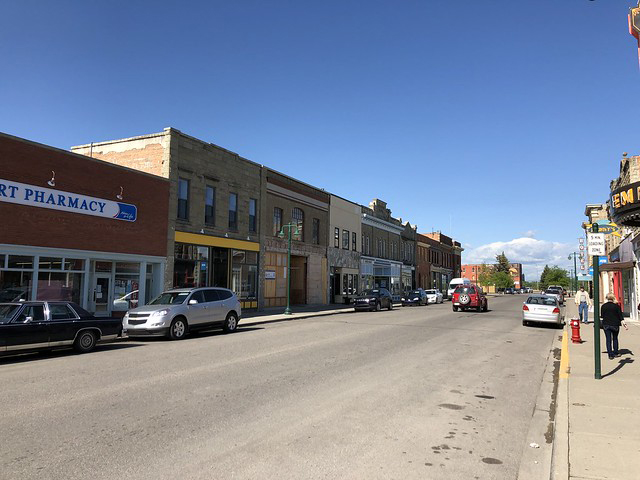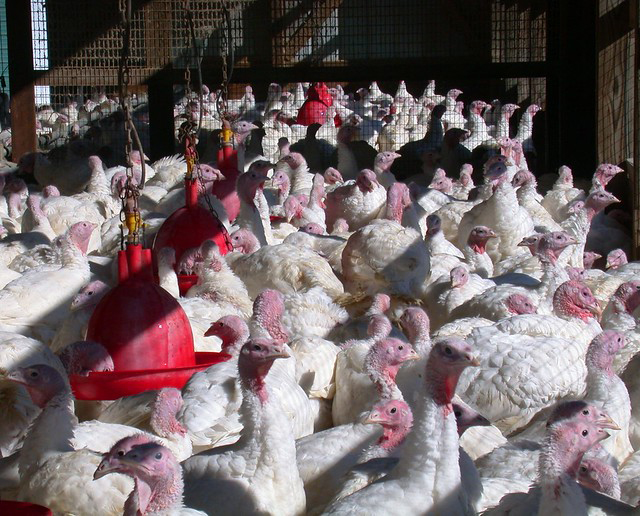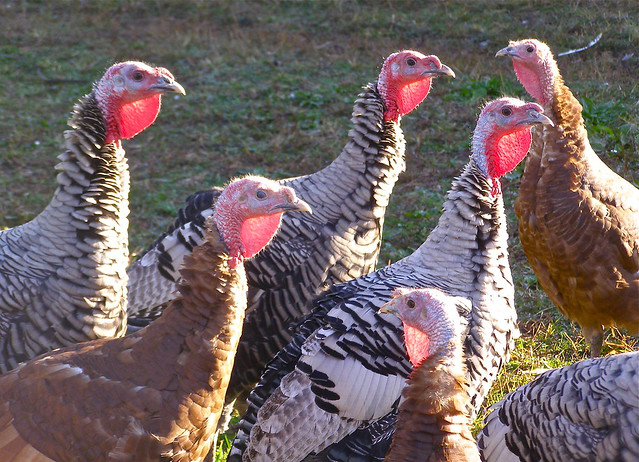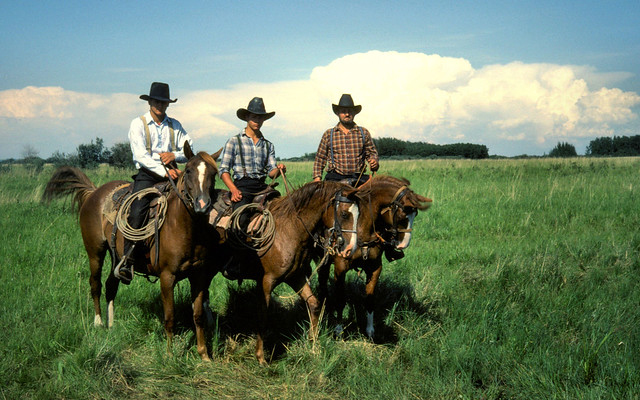A Hutterite colony in southwestern Alberta was targeted by animal rights activists early in the morning of September 2, which prompted many reports in the Canadian press. And that is what the protesters were after: publicity for their cause of freeing all domestic livestock from being butchered. An effective summary of the events of that day—what really happened and why—was published last week by the Alberta Farmer Express.

The reporter, Alexis Kienlen, writes that a group of protesters were dropped off by buses along the highway that goes past the Jumbo Valley Hutterite Colony about 9 miles north of Fort MacLeod quite early on the holiday morning and about 30 of them entered the turkey barn. Others remained out on the highway to protest. When Hutterite workers entered the barn to do their morning chores, the animal rights protesters were already occupying the facility. The barn was filled with them—in the words of the journalist, “a scene that no farmer would want to see.”
The barn, which contains about 4,000 birds, is one of eight free-range facilities at the colony. The “free-range” designation means that the turkeys are free to go out of the barn as they wish and walk around in an enclosed outdoor space.

The animal rights activists had organized themselves through informal, word-of-mouth contacts in order to conduct what they called a “Liberation Lockdown.” Such protests have been held in other provinces but this was the first in Alberta. They sat along the barn walls wearing filter masks, disposable coveralls, gloves, and matching shirts. They were busily taking pictures and live-streaming the scene to the media when they were discovered.
Frankie Hofer, the manager of poultry operations for the colony, complained that the activists had ignored prominent signs out on the highway indicating that the colony is private property—do not enter.
The reporter quoted one of the activists, Kennadi Herbert, from Pincher Creek. (Fort MacLeod is about halfway between Lethbridge and Pincher Creek along highway 3 across southern Alberta.) Ms. Herbert said that the activists were following up on a similar protest in April when a group of informally-organized people demonstrated their opposition to killing animals for food at a hog barn in British Columbia.
She said that the protesters, who range from 7 to 60, have no leader and no name for their group. They come from Alberta, British Columbia, Saskatchewan, Ontario, Australia, the UK, and New York. The group organizes its activities entirely by people reaching out to others they know and trust with a similar desire to commit dramatic actions in order to publicize their cause. They want to save the lives of domestic animals.

Ms. Herbert said that they chose the Jumbo Valley Hutterite Colony for their most recent action both because of its location and because they wanted to focus attention on the treatment of poultry and specifically domestic turkeys.
As she explained to the reporter, “The idea behind the action was to bring awareness to factory farming and animal agriculture. We’re vegan. We just want transparency into everything. A lot of people don’t want to see their food as the individuals they are. We were just wanting to show that.”
She said that she was one of the activists who entered the barn, but there were about 50 more out along the highway, folks who wanted to be part of the demonstration but did not want to trespass. She said she was the one who called the Royal Canadian Mounted Police.
Another activist who participated in the demonstration at Jumbo Valley, Sarah Barnes, said that they wanted to get as much attention as possible. They were disappointed that there was not more traffic on the highway. Their dramatic protest brought TV reporters from Calgary, over two hours’ drive north of Fort MacLeod, and they were somewhat delayed in getting to the colony due to the Labor Day holiday.
Once the TV crews arrived, a few of the protesters asked to be taken on a tour of all of the poultry barns at the colony. Mr. Hofer felt he had nothing to hide so they took a tour of all eight turkey barns. The protesters asked if they could “liberate” five turkeys, which would be allowed to live out their lives in an animal sanctuary. Again, the Hutterites agreed to the request. After about five hours, the protesters finally left the colony with their five liberated birds.

Many Alberta farmers have been urging the Hutterites to press charges against the protesters for illegally occupying their barn, though as of late September they had not done so. Cara Prout, the Executive Director of Alberta Turkey Producers, said that there was no implication of poor handling of turkeys by the colony. “We believe it was targeted solely because the individuals that trespassed do not agree with raising livestock for consumption,” she concluded.